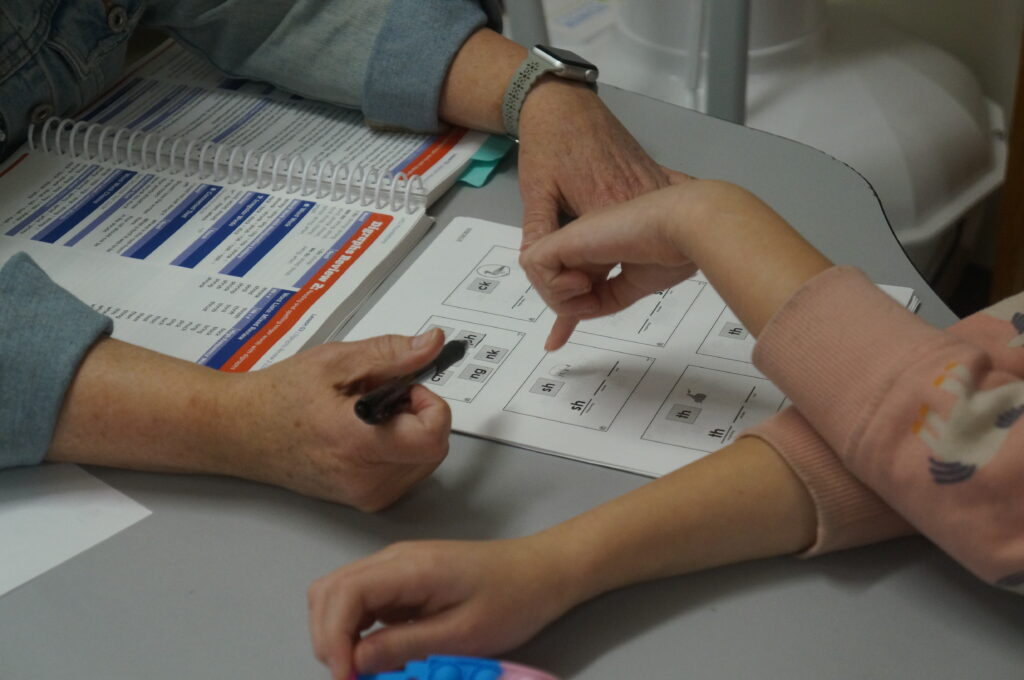ACLU, Decoding Dyslexia join calls for Oregon literacy grants to target highest needs schools
Published 6:25 am Monday, June 2, 2025

- A student in the North Powder School District gets tutored in reading Feb. 20, 2023. (Alex Baumhardt/Oregon Capital Chronicle)
Literacy and civil rights advocates are calling on legislators to send more money to 42 chronically struggling schools and to prioritize teacher training
Literacy and civil rights advocates are calling on Oregon legislators to add targeted investment and accountability targets to Gov. Tina Kotek’s bedrock literacy initiative or risk wasting it.
House Bill 3040 would re-up funding for the Early Literacy Success Initiative first passed in 2023, providing schools with an additional $100 million to spend on improving reading and writing outcomes through 2027. It’s currently in the Joint Ways and Means Committee, where legislators will negotiate funding and rules attached to the bill.
Trending
The Oregon ACLU, the Oregon chapter of the national nonprofit Decoding Dyslexia, the nonprofit advocacy group Oregon Kids Read and several other groups in late May requested the co-chairs of the Joint Committee on Ways and Means require at least $17 million of that go toward 42 of the state’s ‘most neglected’ schools. In the first two years of the Early Literacy Success Initiative, more than 250 schools received a literacy grant.
“Oregon risks spending $90 million or more without meaningful progress on closing the literacy achievement gap,” group officials wrote in a news release.
The 42 schools advocates want to receive targeted funding have the highest percentage of third through fifth graders not reading at grade level since at least 2018. They include César Chávez K-8 School in Portland and Washington Elementary School in Salem, which also have a higher than average percentage of students who are Black, Hispanic or Latino, Indigenous, rural or experiencing poverty.
The groups also asked that of the $17 million to be set aside, legislators should require that $4 million is spent on training more than 400 teachers at those 42 schools in the “science of reading,” and that the remaining $13 million go toward tutoring more than 5,000 of the highest needs students in those schools.
What is the “science of reading”?
The term “science of reading” is used to describe the large body of cognitive and neurological science showing how the brain learns to read. Since the 1960s, hundreds of studies have been conducted to find the most effective ways to teach kids to read. Evidence shows that the human brain does not learn to read or write naturally but relies on explicit instruction in a specific set of skills.
An entrenched problem
Over the past 25 years, nearly two in five Oregon fourth graders and one in five eighth graders have scored “below basic” on the National Assessment of Educational Progress, often referred to as the nation’s report card. That means they struggle to read and understand simple words.
Trending
The nearly 10,000 elementary school teachers in Oregon learned different methods for teaching reading depending on where they went to college. Many colleges are failing to prepare teachers to teach reading, according to a recent analysis by the National Council on Teacher Quality.
Research has found that teacher quality is the most important, in-school factor when it comes to student achievement.
Reporting from the Oregon Capital Chronicle found most elementary teachers-in-training at colleges and universities in the state take only one or two courses on reading instruction, and are more immersed in theory than in linguistics and the rules of written language. Some even learned flawed methods as part of an approach to teaching reading called “balanced literacy,” which can include teaching students to guess at unknown words, to memorize words and to use pictures to decode a word.
Calls for updates
House Bill 3040 as written offers a few updates to the Early Literacy Success Initiative, including language that will allow schools to spend the grants on training classroom assistants, not just teachers and administrators.
It also would add the requirement that any grant money spent on K-5 reading curriculum has to be spent on curriculum that has been approved by the State Board of Education and create a regional network of literacy experts housed in the Oregon Department of Education to support school and district literacy specialists and help with coaching.
In their request to the Joint Ways and Means Committee, the literacy and civil rights advocates asked that language in the bill currently prioritizing grant money to “schools that have literacy proficiency rates that have not recovered to pre-pandemic levels,” be changed to, “schools with the lowest rates of proficiency in literacy.”
They also want the bill to mandate the Oregon Department of Education collect and report more data on what schools are doing with the grant money, including how many hours of tutoring students are offered, and details about the type and number of hours of professional development in reading instruction that teachers take, and who all is participating in the professional development.
They’ve also asked that the Legislature require the Oregon Department of Education to monitor the efficacy of the Early Success Initiative by tracking and reporting regularly to legislators progress among 3rd graders at schools with the bottom 20% of reading proficiency scores.
The latest request to the Joint Ways and Means committee follows an open letter Oregon Kids Read and more than 100 educators sent to the Legislature in March, asking that lawmakers require a portion of every literacy grant to go towards teacher training in the science of reading, ensuring all K-3 teachers and administrators in the state have received training by the fall of 2027.
“Literacy is a civil right,” Angela Uherbelau, founder of Oregon Kids Read, said in a news release. “Families are calling on Ways and Means to use its funding oversight to prioritize students and schools that struggle the most.”






